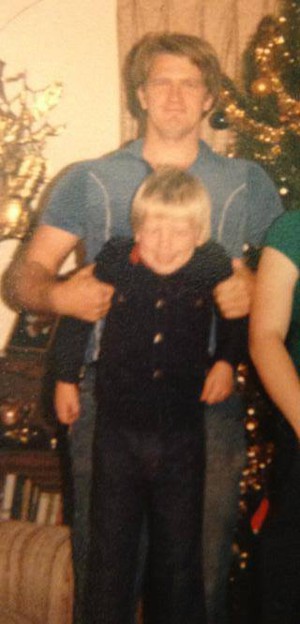Hey all! McEric here with a heads up about a romantic comedy releasing this friday called ODE TO JOY, starring Martin Freeman, Morena Baccarin, Jake Lacy, Melissa Rauch, and Jane Curtin, directed by Jason Winer. Check out the Trailer:
The film takes place in New York City and focuses on Charlie (Freeman) who suffers from Cataplexy and the simple life he’s carved for himself due to his condition. He drowns out the sounds of revelry on the streets with blaring classical dirges, works in a quiet library, and occasionally enjoys a slow turn around the carousel, but that’s about as joyous as he can get. So when the big energy of firecracker Francesca (Baccarin) enters his life, he can’t even begin to entertain the notion of falling in love with her. He successfully pawns her off on his brother Cooper (Lacy) and watches in agony as their relationship blossoms. The new couple get the bright idea to set him up with reclusive shy girl Bethany (Rauch), and everything would be fine if Francesca and Charlie could only pretend they don’t have feelings for one another.
The movie is fun and sweet at times, yet also it’s apparent throughout that Charlie is a bit of a sociopath in the way that he makes everyone to play the roles he needs from them to engineer his life to his design. If you can look past that deviant sickness, it’s actually a touching film with several laugh-out-loud moments, some heart, and truly wonderful performances. Freeman and Baccarin have a fierce chemistry and are a joy to watch on screen, but it’s Melissa Rauch (TV’s “Big Bang Theory”) who really steals the show. If for no other reason, watch it for “the cello scene”, which I had to bring up to both Morena Baccarin and director/co-writer Jason Winer when I had the chance to speak with each of them about the film.
Morena Baccarin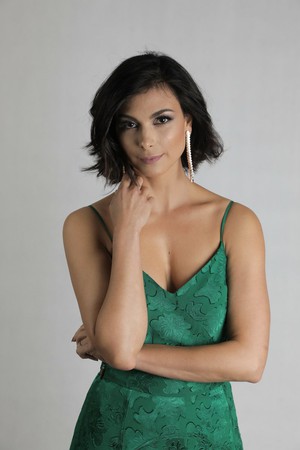
Eric M: Could you give me a quick elevator pitch for the film ODE TO JOY?
Morena Baccarin: It is essentially about a man who has Cataplexy, which means he can’t get overly excited, whether it’s happy or upset, or he passes out. I play a very vivacious and excitable character named Francesca who comes into his life. It’s about two people finding one another and even though the circumstances are against them try to have a go at it.
EM: The meet-cute in the library is one of the finest examples of the device I’ve seen on film. What was it like shooting that with Martin Freeman? Was that the first scene you shot together?
MB: No, it wasn’t. I think that was the second week of filming, perhaps. It was fun; it was a fun scene to shoot. I feel like that scene kind of represents exactly who his character is.
EM: I enjoyed it when your character says “Wow, you really don’t get worked up, do you?” and he replies, “I can’t.” I felt it was a kind of Incredible Hulk nod.
MB: [laughs] Yes, exactly. He’s exactly like the Incredible Hulk.
EM: How did you get involved in this project? What made you decide, “Oh, I’ve got to do this movie”?
MB: I read the script and really loved it. I’d met the director, Jason Winer, and I was a really big fan of his and he was a fan of mine. I met with him and it just seemed like a really nice group of people and a really fun opportunity.
EM: Melissa Rauch just steals the show as Bethany.
MB: Yeah.
EM: What was it like filming that cello scene? I mean, I just can’t imagine keeping a straight face.
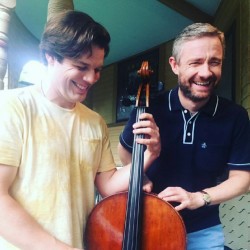
MB: It was impossible, IMPOSSIBLE to keep a straight face. She was so good, and really with anything that she did. She had just done the scene at dinner with the cat and I was just, if they’d cut to my face, you could see, I was dying trying not to laugh.
EM: So the film is releasing on August 9th. What would you like to see happen with this film? Would you like to see it enlighten, or educate, or entertain…
MB: I think it’s a great piece of a slice of life and energy. I also think it’s very sweet and positive at a time when we have just a lot of bad shit going on around us. It’s a movie about love and happiness and finding your jam, whatever it is.
EM: So what are you working on next?
MB: I’m working on a couple of films right now. One is called WALDO with Charlie Hunnam and Mel Gibson about private investigators; it’s kind of a comedic film noir.
EM: That sounds awesome.
MB: Yeah, it’s really good. And then another total opposite action End-of-the-World movie with Gerard Butler called GREENLAND.
EM: Yeah, I read about that yesterday. Seems like it’s going to be a lot of fun running from the Apocalypse.
MB: Yeah, I’m doing a lot of running right now.
EM: Well, congratulations again on this picture. You are moving and captivating in it. How much of yourself did you bring to Francesca?
MB: [laughs] Wouldn’t you like to know? I mean, it was definitely me; I wouldn’t have been able to play it otherwise. But I definitely drew upon aspects of my childhood and people around me, my family. I grew up in a very fiery and resilient environment and that helped. But her vulnerabilities and her issues, the things she has trouble with, I think is a very common thread that a lot of people have. The fear of losing people creates that sense of vulnerability that finds you basically attracting people that you shouldn’t and whatnot.
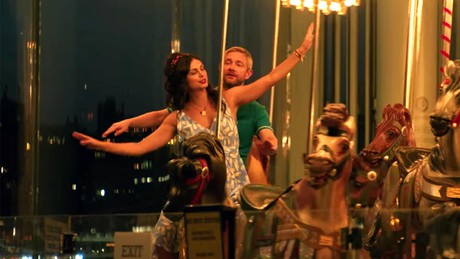
EM: Abruptly switching gears, can you tell me anything about what’s next with the DEADPOOL franchise?
MB: I have no idea. They don’t really consult me on their next steps.
EM: That’s a shame.
MB: I know. I mean, I have plenty of ideas.
EM: I want to go in the WayBack machine and ask about the miniseries “V”. I am a man of a certain age so I remember the original when it ran and I loved the revival. I didn’t really feel like we got an ending… What was your experience working on that show?
MB: It was really frustrating. I felt like we started off with something great and we had incredible ideas about where the show was going to go. We had about three showrunners who kept coming in and out of the show and the network kept messing with it and not allowing it to go where we wanted it to go. It suffered from “too many cooks in the kitchen” and as it came to an end there it just kind of petered out.
EM: If you got the opportunity to finish it via a standalone film, a la SERENITY, would you do it?
MB: Maybe. I don’t know. I feel like I kind of put it to rest. Possibly.
EM: Speaking of SERENITY, I know everyone asks you this every time they see you and now it’s my turn: If the opportunity came for a “Firefly” or SERENITY reunion would you be on board?
MB: In theory, yeah. It’s kind of hard to get all of us on the same page about it. In theory, yes; it was a really nice time in my life and I love those guys very much.
EM: Comic-Con is a few days. Will you be heading out to San Diego?
MB: I won’t. Happily. I’m shooting in Atlanta so I won’t be able to get out there. It’s such mayhem that I have to say I’m not sad to miss it.
EM: It gets crazy.
MB: It gets really crazy and I’m sure I’ll be there again, so I’m going to enjoy my one year off.
EM: Any last thoughts on ODE TO JOY?
MB: It was a really fun, blissful experience, shot all over New York. It was really great to do a small Indie and work with such great people and have fun.
EM: Yeah, while watching the film I thought I hadn’t ever seen you as this pure romantic lead before. There’d always been the action set-pieces and the sci-fi elements, the intrigue. Just to see you smiling and sweeping people off their feet was a lot of fun and I hope that we see a lot more of that in your career.
MB: Thank you.
EM: One more thing that you mentioned: New York. Watching the film it’s such an essential backdrop that it’s basically another character in the film, much in the way that Woody Allen made it so integral in his early work. How did it feel to add to that cinematic legacy of such an iconic city?
MB: I love that. I really love New York, period. And I love when New York appears in movies. And it’s so nice to shoot somewhere when you’re actually in the city you’re supposed to be in. So often you’re in Vancouver or some other city. Like, right now I’m shooting GREENLAND in Atlanta and it’s set in Atlanta, and that’s so refreshing to actually be in the place you’re shooting at. New York has a very romantic quality to it and it really fits the movie.
EM: Well, that’s all I’ve got for you today. Thank you so much for taking the time to talk to me and you have a great day.
MB: You, too.
Jason Winer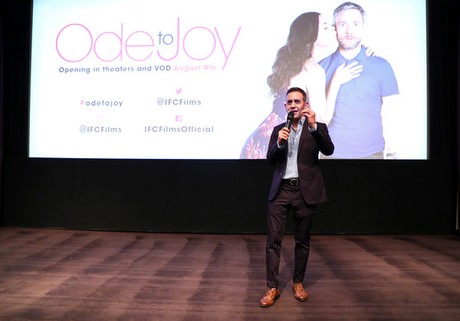
Eric M: So we’re going to talk about ODE TO JOY which I watched the other day and I already got to talk to Morena about it and she just had a blast making it. So my first question would be “Where did this movie come from?” How did you decide “That’s the movie I gotta make?”
Jason Winer: Well, I was introduced to this idea by Mike Falbo, he’s one of the producers. He brought me a “This American Life” piece that they had done about this disease called Cataplexy, which I had never heard of, which many people had never heard of, yet it affects 1 in 2,000 people, about 3 million people worldwide, so it’s not that rare. It’s related to Narcolepsy but it’s triggered by extreme emotion, most notably in the case of our main character, happiness. When he feels very happy he can pass out. Well, to be fair, it’s not actually passing out; it’s muscle weakness that takes him to the point of crumbling. So when I heard this I thought, and Mike thought the same thing, which is I’ve never heard such an original reason why someone couldn’t fall in love. We both love Romantic Comedies but we believe that one of the reasons they’ve petered out over the years is that we’ve sort of run out of reasons to keep people apart, and this is one we’ve never seen.
EM: That’s a great point. It’s so often boy meets girl or girl meets boy and then we keep them apart for two hours; how do we do that? This one sort of fell into your lap. Literally.
JW: Yeah, we knew the high wire act was we’re doing a comedy about a man with a disease and we have to be very specific about the disorder and respectful and have to strike a tone that is at once funny but still human and resonant, so no one thinks we’re making fun [of it] and hopefully we pulled that off.
EM: I agree and I think a great strength to do that was getting Martin Freeman. Tell me about your pursuit of him for this project.
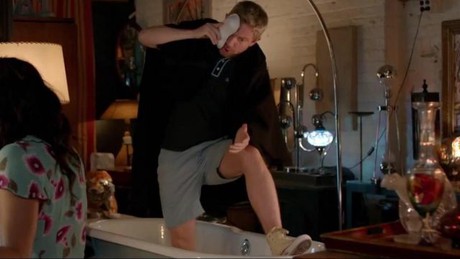
JW: Well, I love comedy when it’s mixed with emotion so to me, my favorite actors are those that are equally adept comedically and dramatically. And you’ve seen that from Martin over the years. We had a very funny call with him early on when we were first talking about doing this, and he, in his funny sort of demure British way, said “Does anybody really want to see me do this?” And we were like “Yes, Martin! Yes they do!” And I think what he was talking about was like in this role as a romantic lead. What we loved was that, despite how incredibly diverse his career has been, he hasn’t really been given the chance to play the romantic lead in film. So, in that sense, finding him in the role in this film is surprising.
EM: I had a similar conversation with Morena about her role in this film, that this is probably the first time she’s gotten to play the romantic lead without the benefit of lasers and superpowers. Tell me about bringing her on board.
JW: Yeah! Well, Morena and I met many years ago, when she was doing “V” and I was filming the first season of “Modern Family”; we met at like an ABC event and expressed mutual admiration for each other. And thankfully when this script got sent to her, she remembered me, and she was open to it and read it even though we were offering her, like, zero dollars. And from the first meeting we were on the same page about this character, and she loved the chance to mix together things she had done throughout her career; the emotional capacity, say, of her character in “Homeland” with some of the piss-taking banter she had in DEADPOOL but add to it a kind of sweetness and lightness that she had never done before. Certainly not as a lead in a movie. And I think it’s going to be an eye-opener as they look at Morena.
EM: I thought the same thing, that this could be the opening of a new chapter in her book, playing that pure magical, romantic lead; she really just embodies that RomCom spirit. I thought it was fantastic.
JW: She does! She and Martin connected so much. They’re both classically trained, and what that meant on this set was that no two takes were ever the same. The two of them would always stay present and alive in every take, of every scene, so that there was always a kind of a ping pong of energy between them. So if Morena would change this one subtle thing about her performance then that would change the way that Martin reacted to her in that moment and so on down the line. It reminds me of one of the scenes in the film, and it’s one of my favorites, where she introduces herself to him in the library stacks. It all takes place in one take and we’re just observing the ping pong between them, and how uncomfortable and threatened Martin’s character is by her vivaciousness. It’s super tense in a way that makes you laugh.
EM: We have to talk about the real show stealer, though, Melissa Rauch.
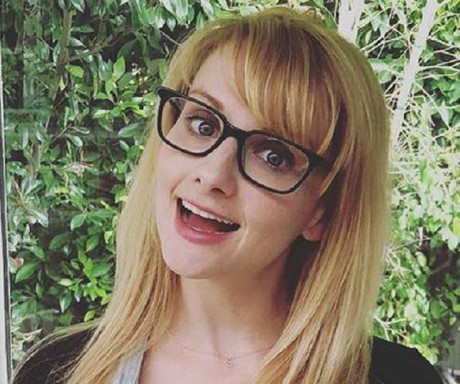
JW: Yes!
EM: I asked Morena how she kept a straight face during the cello scene, and she’s like “I didn’t! You’ll see the camera’s not on my face.”
JW: [laughs] Yeah, it’s not a lot. It’s Martin. Martin was the only one who could, whatever he was doing in his mind to go to a place dark enough to not laugh, he was the only one that could quite get there. Melissa is a comedic assassin. She’s so specific, both in the creation of the character and what she wants to do in a given scene; it’s incredible. She begins the creation of every character with the voice. She finds the voice of the character. Once she knows how a character talks and their rhythm, then the whole thing comes out from there. When we first met about this, she said, “I know how this character talks.” She was described in the script as “She speaks so softly they can barely hear her.” She said “That tells me everything I need to know” and she built the character around that quality.
EM: One last thing: I’ve looked over your resume, Jason, and you’ve done so much television, garnering so many awards and accolades, but not as much film. What about this project made you think it’s a Silver Screen ambition and had to be done this way?
JW: I’ll tell you a story: I was in the editing room, working on this movie. After seven years of developing it, working on the script, trying to get actors attached, trying to get the money to get it made… And I’m sitting there, after having watched the assembly of the whole movie, and after seven years, for the first time, I looked at the film and I said “My God, this is about me!” And I hadn’t realized it until that moment, that this idea, this disease, it’s a metaphor for this thing that we all do where we protect ourselves to the point that we never want to experience emotion too deeply. That if allow ourselves to get too happy that it means we’re opening ourselves up to sadness when it comes along. And I’m a person who stays even, which as a director is great on set, but in your personal life, staying even isn’t always the best thing, and it’s something I have to learn to break through and get shaken out of. That’s what this character needs: he needs to get shaken out of his emotional flatline through life. Hopefully it’s a theme that a lot of people can connect to.
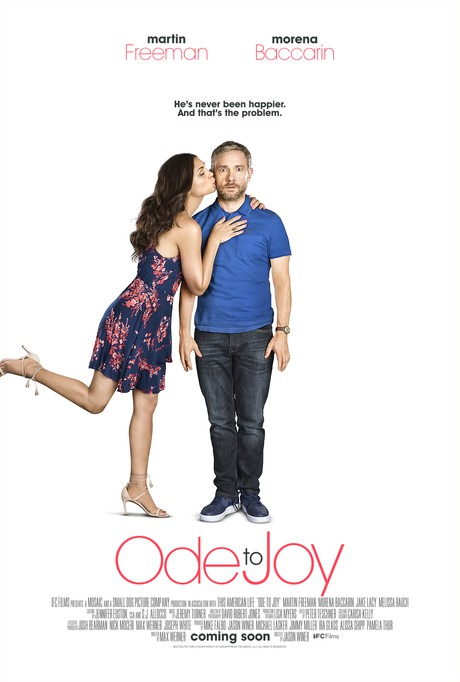
Big thanks to Morena and Jason for speaking with me. ODE TO JOY releases in theaters and on digital & VOD this Friday, August 9th. Check it out!
-McEric, AKA Eric McClanahan-
